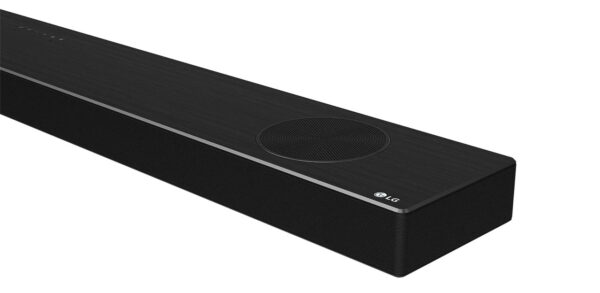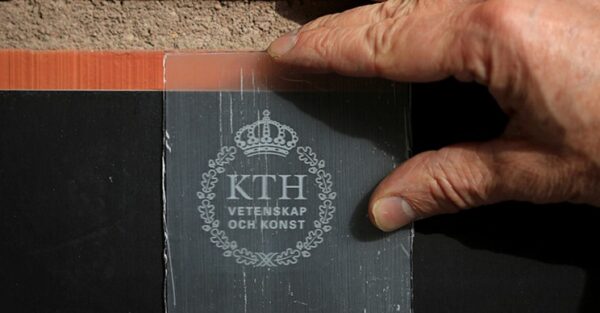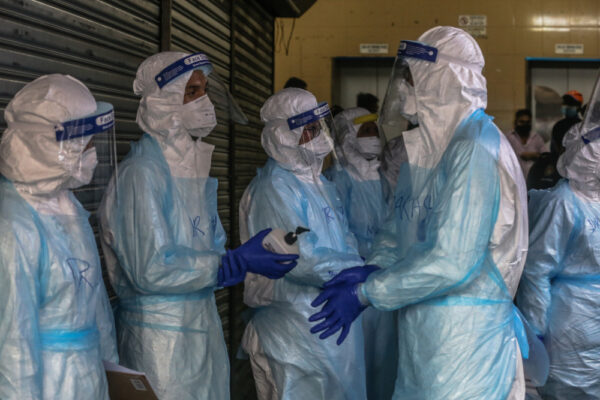The term ‘PPE’ is something we are all familiar with because the important role of this protective equipment has been played during a pandemic. However, there is a downside to this private equipment, usually – usually large, uncomfortable, and slows down your ability to work. That’s why Darpa announced a new project that tried to revolution PPE for the battlefield with the development of ‘ppb.’
PPB DARPA stands for personalized protective biosystem, a new program that has peeled many companies to develop technology that can reduce how much PPE is needed when faced with biological and chemical threats. In explaining the purpose of this program, the Darpa PPB program manager Eric Van Gieson said:
PPB aims to overcome the limitations of PPE, including the vulnerability of threats-specific, thermal load / logistics, and the risk of potential exposure. The ability to provide CB protection that is not intended will be very valuable in maximizing the right time of the target, providing operational flexibility, extending the duration of the mission, and allowing operations in a harsh environment, regardless of threats.
The DARPA PPB program will run for five years and will consist of two different ‘technical fields,’ which will try to keep the body from contact with external threats when offering a 100 percent survival rate for 10+ unexplained chemicals and biological. threat.
The second technical area will focus on neutralizing the threat of CB of things such as eyes, skin, and mouth, and other vulnerable internal network barriers. ‘This system will be in a certain way to be configured, according to DARPA, although it does not enter specifically about what is in his mind.
DARPA has given a PPB contract to Charles River Analytics, Flir Systems, and Leidos for the development of this technology. This program will work with the FDA on the rules of things, note that it will look for new drug approval investigations at the end of the PPB program.











![Have you been encountering the [pii_email_2c5d108980d117c8ca52] error while trying to send or receive emails using your Outlook account, you’re not alone. It’s a standard Outlook error that sometimes gets triggered thanks to network connectivity issues. However, several other factors also can cause you to run into the said error. The good news is that you simply can troubleshoot this error by yourself. during this guide, we are getting to mention various factors that cause the PII error and what methods you'll utilize to repair it. So, with none further ado, let’s start . What Causes the [pii_email_2c5d108980d117c8ca52] Error in MS Outlook In general, the error occurs when MS Outlook fails to determine a secure reference to the e-mail server. But, as we mentioned earlier, there are many other reasons which will trigger this error also . a number of these reasons include: Your device isn't connected to a lively Internet connection Your Outlook profile has been damaged thanks to external factors There are incorrect antivirus configurations on your PC FIles on your POP3 server are damaged How to Fix [pii_email_2c5d108980d117c8ca52] Error So, now that you simply know what triggers the [pii_email_2c5d108980d117c8ca52] error in Outlook, let’s take a glance at the solutions that’ll assist you fix it. Also examine the way to fix outlook [pii_email_316cb5e2e59f1ce78052] error Check Your Internet Connection Since a poor network connection is that the primary explanation for the error, start by checking your Internet connection. confirm that your device has active Internet connectivity. you'll try accessing other online services to ascertain if the web is functioning or not. Change Antivirus Configurations If you've got recently installed an Antivirus program on your PC, it'd be configured to automatically scan emails. If that’s the case, the Antivirus will restrict the Outlook app from functioning properly. So, confirm to vary the Antivirus Configurations by disabling the “Email Scanning” feature. Reinstall/Update Outlook Reinstalling or updating Outlook to the newest version is yet one more effective thanks to fix the [pii_email_2c5d108980d117c8ca52] error. When you’ll reinstall the app, all the damaged temporary files are going to be deleted and therefore the root of the matter are going to be eliminated also . Clear Unnecessary Emails from Outlook Folder If your primary inbox has too many unnecessary emails, they’ll cause bandwidth issues. this is often the rationale it’s always advised to clear the unnecessary emails from your Outlook folders. While you’re at it, confirm to clear the Trash also . this may help your Outlook app to deliver optimal performance. Conclusion So, if you’ve been encountering the [pii_email_2c5d108980d117c8ca52] error for a short time now, the above-mentioned will assist you fix the matter . Follow these tricks and access your Outlook account with none hassle.](https://tomtomworks.com/wp-content/uploads/2021/09/How-to-fix-outlook-pii_email_2c5d108980d117c8ca52-er-200x200.webp)

![How To Fix [pii_email_71e6bcfa8a2bee2aa151] Erro](https://tomtomworks.com/wp-content/uploads/2021/09/How-To-Fix-pii_email_71e6bcfa8a2bee2aa151-Erro-200x200.jpg)




